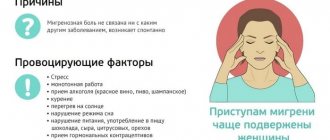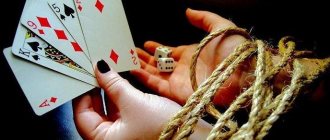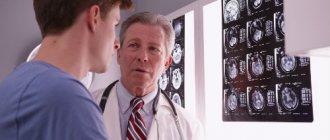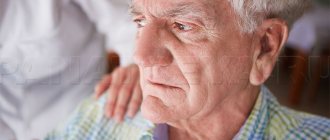Headache is an unpleasant symptom that often appears after drinking alcohol. It is associated with the harmful effects of alcoholic beverages on the brain, liver, blood vessels and other organs. There are recipes in the arsenal of traditional medicine to reduce pain, but it is better to consult a competent doctor. It is important to understand that short-term discomfort and soreness after drinking alcohol are considered normal. If it is acute or persists for a long time, you should contact the doctors at the Clinical Brain Institute.
1. Why does a headache occur after drinking alcohol?
2. Mechanism of headache development
3. The effect of alcohol on the nervous system and brain
4. Risk factors
5. Treatment methods for headaches
6. Prevention methods
Content:
- Causes
- Mechanism of pain
- Headache after alcohol: ways to eliminate it for light drinkers
- How to relieve headaches after alcohol in chronic alcoholism and binge drinking
The most common complaint in most diseases is headache (cephalgia). People who drink alcohol occasionally or regularly experience this painful symptom quite often. This symptom significantly worsens the state of health and requires its elimination. The reasons for its development are different. In narcology, there are many different methods for treating pain. People facing this problem want to know how to relieve headaches after drinking alcohol. In order to relieve the pathological symptom, pharmacotherapy and traditional medicine methods are used. If you cannot eliminate this pathology on your own, you should consult a doctor.
Prevention methods
The simplest method of preventing headaches is to refrain from drinking alcoholic beverages. However, they appear periodically in the diet of most people. Doctors have several recommendations on how to avoid pain and hangover, as well as reduce the harmful effects of alcoholic beverages on the body:
- choose only high-quality alcohol, with certificates and necessary documents;
- completely avoid drinks of dubious origin - they may contain methyl alcohol, the use of which can cause blindness and lead to death;
- Do not drink alcoholic beverages on an empty stomach;
- undergo routine examinations in order to detect changes in the functioning of the liver and other organs in a timely manner;
- do not exceed the permissible dosage of alcohol.
At the Clinical Brain Institute you can undergo an examination and receive recommendations for the treatment of headaches of any origin. You can get rid of a hangover after drinking alcohol on your own. However, it is important to remember that alcoholic drinks pose a great danger to the body and can cause serious disruption to the functioning of internal organs.
Causes
Cephalgia after drinking alcohol appears due to the influence of various painful factors. Ethanol is a neurotoxic poison. Even in small quantities it has a destructive effect on the following organs:
- Brain.
- Liver.
- Heart.
Other systems suffer too, but to a lesser extent.
The destructive effect of alcohol on cells is based on:
- Destruction of cell membranes.
- Dysfunction of cell organelles.
- Impact on the core.
Headache occurs not only due to a direct destructive effect on the neurons of the brain, but also as a reflex reaction from damaged tissues of the whole body.
The second pathogenetic mechanism for the formation of painful sensations is intoxication with the products of alcohol catabolism. Acetaldehyde has particularly toxic properties. It accumulates after the completion of the euphoric phase during the period of inhibition of the central nervous system. A hangover is a result of exposure to acetaldehyde.
Is it possible to give approximate forecasts?
Strictly speaking, it won’t be possible to do it any other way, as was already explained above, but approximate forecasts can indeed be given.
If we assume that after leaving a week-long binge, a person does not take any action to alleviate his condition, but simply waits for the body to cope on its own, then the recovery time for different groups of patients will be approximately as follows:
- 1-2 days: persons under the age of 30-35 years, without chronic diseases, with alcoholism no higher than stage I;
- 3-5 days: persons aged 35-60 years, without chronic diseases, with alcoholism no higher than stage II;
- 5-10 days: persons over 40 years of age, with periodically exacerbating chronic diseases, with stage II-III alcoholism;
- 10-14 days: persons with serious diseases of the liver or pancreas, cardiovascular or urinary system, as well as elderly people over 60-65 years of age.
Mechanism of pain
Painful sensations also appear as a response of the body to some pathogenic factor. Cephalgia appears against the background:
- Spasm of the arteries
, leading to high blood pressure. - General intoxication
and direct toxic effect on the brain of alcohol, metabolites. Especially when it comes to drinking low-quality types of alcoholic beverages. - Losses due to
alcohol poisoning in intra- or extracellular
fluid. - Disruption of the functions of the endocrine system
, leading to imbalance of metabolic processes. - Pathological malfunctions of the autonomic nervous system.
- Overeating that accompanies drinking alcohol , or vice versa
– taking alcohol-containing products on a lean stomach.
Each of these factors can be the cause of cephalgic problems, either independently or in combination with others.
Non-drug options for pain management
You can feel better after drinking a lot of alcohol without taking medications. So, the following recovery methods have proven themselves to be excellent:
- Cold and hot shower. Provides increased blood circulation and invigorates. Distracts from uncomfortable sensations. You can take it several times a day.
- Long walks in the fresh air. But if it's hot outside, it's better to stay home. If the weather is comfortable, it is recommended to walk in a forested area or on the shore of a reservoir.
- Taking plenty of fluids , herbal teas and decoctions. When ethanol poisoning occurs, the body suffers from a lack of fluid. It needs to be eliminated as soon as possible. In the hospital, doctors administer IVs. At home, the patient has only one available method - drinking liquid. It should be remembered that water is better absorbed if you warm it up a little beforehand.
- Normalization of the daily routine. A person who has been poisoned by alcohol should sleep about 10 hours a day. If he is very ill, then he should rest during the daytime.
In case of low blood pressure, drinking coffee or performing simple physical exercises is allowed. But here it is important to observe the measure so that the load on the heart does not become too high.
Headache after alcohol: ways to eliminate it for light drinkers
Methods to alleviate the condition of alcohol intoxication and withdrawal syndrome
some. You can try to eliminate the symptoms using simple home remedies, and if they are ineffective, switch to drug therapy.
In case of ordinary household alcohol poisoning, which develops after drinking excessive quantities of alcohol for a particular person, the simplest actions can stop cephalalgia.
Recommended:
- Take a contrast (soft, without pronounced temperature changes) shower.
- Apply a cold lotion to your head.
- Drink mineral water, fruit drink, juice, compote to restore water balance.
- If possible, lie down in a calm environment for some time.
Usually these simple manipulations are quite enough to get relief.
To relieve headaches from alcohol in case of more severe poisoning, you should use:
- Gastric lavage with warm water.
- Eating cucumber or cabbage pickle.
- Enterosorbent.
- Brewed infusion of St. John's wort, motherwort, rose hips.
- Taking the painkiller available in the home medicine cabinet: analgin, aspirin, paracetamol, ibuprofen, indomethacin, etc.
After completing all the procedures, it is advisable to lie down and provide access to fresh air into the room. If you have high blood pressure, it is recommended to take an antihypertensive drug; it is better to consult your doctor about which one.
Some people try to relieve headaches after alcohol with a small dose of alcohol.
You should know that this method is applicable only to patients with
stage II alcohol dependence.
It is for them that hangover suffering, including pain, is eliminated by a “medicinal” portion of an alcohol-containing drink. In healthy people who have been poisoned once, this method will cause a deterioration in the condition and increased intoxication.
If the methods described do not help, and your health does not improve or even worsens, you will have to seek the help of a doctor.
. To do this, it is best to contact a narcologist or call a specialist at home.
Symptoms of intoxication are relieved quickly with the help of droppers to cleanse the blood. The introduced ingredients quickly neutralize and remove poisons, thereby eliminating pain.
How to recover from alcohol poisoning
In order for painful symptoms to become a thing of the past, you need to properly recover after a feast. Under no circumstances should alcohol be used for “health improvement”. The rate of ethanol metabolism is constant. It does not depend on the dose of drink used. The liver has not yet had time to process yesterday’s portion of alcohol, and it is already being given a new one. Under no circumstances should you do this.
Another prohibition that patients should observe is avoiding the use of painkillers that contain paracetamol. This is due to the fact that this substance is metabolized with the participation of liver enzymes, which means that the load on the liver increases after taking it. The combination of alcohol and paracetamol increases the likelihood of developing liver failure.
Narcologists do not recommend taking brine. In fact, it is a hypertonic salt solution, that is, it helps to restore electrolyte balance to some extent. However, calculating a safe dose of saline solution is almost impossible. If you drink too much of it, the load on the kidneys will increase, which is extremely undesirable.
How to relieve headaches after alcohol in chronic alcoholism and binge drinking
Cephalgia in people suffering from alcohol dependence is caused by both the presence of hypertension and chronic intoxication. Treatment is combined with the elimination of withdrawal symptoms.
Drug treatment services include:
- Infusion-drip therapy
promotes rapid rehydration, replenishment of necessary water-salt blood components and elimination of toxins. - The use of symptomatic drugs:
diuretics, antihypertensives. - Prescription of nootropics, anxiolytics
, and other psychotropic drugs. They relieve suffering caused by psycho-neurological symptoms.
After stopping binge drinking and abstinence, patients continue to experience cephalgia for a long time. They are often caused by mental disorders. This is often how residual cravings manifest themselves. Therefore, psychotherapy is indicated for such people.
If you have any violations and have a question about how to relieve a headache from alcohol, try to get to a doctor’s consultation, where they will find out the cause of the condition and find the optimal method for eliminating your complaints.
Bibliography:
- Starshenbaum Gennady Vladimirovich. Addictology: psychology and psychotherapy of addictions / Publisher: Cogito-Center / Year of publication: 2006 / Number of pages: 367
- Roshchupkina T.N. Clinical manifestations of alcoholic encephalopathy of paroxysmal states of alcoholic origin / Journal “International Reviews: Clinical Practice and Health” / year of publication: 2019
- Zinovieva O.E., Emelyanova A.Yu. Neurological manifestations of alcoholic illness: the role of B vitamins in treatment / Journal Consilium Medicum / 2016
- Razvodovsky Yuri Evgenievich. Narcology / Publisher: LAP LAMBERT Acad. Publ. / Year of publication: 2013, Number of pages: 136
Signs of alcohol poisoning
- With a small amount of alcohol consumed, signs characteristic of severe intoxication appear.
- A person sweats a lot, even if the room is cool.
- The skin becomes pale and the body temperature rises.
- An excited state (aggression or increased activity) is sharply replaced by lethargy and drowsiness.
- The body tries to get rid of toxic poisons: nausea, vomiting, excessive salivation, and bowel dysfunction are observed. Possible abdominal pain.
- Difficulty breathing, disorientation, loss of consciousness.
If at least one of the listed signs occurs, or the person’s condition gradually worsens, then it is necessary to call an ambulance.
How to get rid
If the described symptom is transient and insignificant, then you can detoxify the body at home. Are used:
- still mineral water;
- adsorbents - activated carbon and its analogues.
How to fall asleep after drinking alcohol if you feel dizzy? The condition will be alleviated by glycine, a drug that normalizes the processes of protective inhibition in the central nervous system. It is taken at the rate of 1 tablet per 10 kg of weight. The tablet is placed under the tongue, it should dissolve.
This unpleasant symptom can be reduced by taking one of the following poses:
- lower your head and cup your face with your palms;
- sit down and lean your hands on the wall;
- in a lying position on your side, pull your knees to your chest;
- sitting on the bed, lower one leg and rest it on the floor;
- lie on your stomach, rest your forehead on your clenched fists.
A contrast shower helps. But it should be taken with caution so as not to lose balance. Otherwise, you will have to cope not only with the condition described, but also with the consequences of the injury.
What to do if you have severe dizziness that does not go away? Clinical recommendations can only be made after understanding whether critical disorders have developed in the brain. The radical method is to stop drinking alcohol. This will require classical treatment from a narcologist.
Why do you get a headache after drinking alcohol?
Many people often notice that headaches appear or get worse after drinking alcohol. But not everyone knows what this is connected with. Some think there may have been poor quality alcohol. But most often the development of headaches, even when drinking a small amount of red wine or champagne, is associated with migraine.
Migraine is a special type of primary headache, which is characterized by pronounced intensity, unilateral localization of pain in the forehead and temple or in half of the head, while bright lights and loud sounds irritate, the pain intensifies with physical activity. A migraine attack can occur between 30 minutes and 3 hours after drinking alcohol. This is a typical alcohol-induced headache.
Another type is delayed-onset alcohol headache, also called hangover headache.
, it appears the next morning after drinking alcohol.
Many patients who are stressed, depressed, or anxious tend to drink alcohol. At the same time, they often experience tension headaches
. These pains are usually bilateral, mild, pressing or aching, without fear of light or sound.
There is another type of headache - cluster headaches.
They are the strongest, usually concentrated in the area of one eye; the eye turns red during an attack, there is lacrimation, nasal congestion, and nasal discharge. Patients with cluster pain in 50-80% of cases are very sensitive to alcohol, so it is better for them to abstain from it completely.
Why do people with migraines and some others do not tolerate alcohol well and react with headaches?
The fact is that they have a tendency to increased vascular reactivity, when spasm and then dilation of cerebral vessels can occur. Alcohol can cause dilation of the blood vessels in the head; it is no coincidence that many people’s faces turn red; this entails the development of a headache. This is facilitated by increased blood pressure when drinking alcohol. In addition, some wines contain histamine, which can trigger a migraine attack. An important factor in the development of headaches is the loss of fluid in the body due to the diuretic effect of almost all alcohol-containing drinks. An important factor is lack of sleep, especially after holiday festivities. Another factor is the decrease in glucose and serotonin levels after alcoholism, which increases sensitivity to pain.
If there are any changes in the blood vessels of the brain, especially their narrowing due to atherosclerosis, developmental abnormalities, cerebral aneurysms, as well as concomitant diseases such as diabetes mellitus and hypertension, alcohol may be one of the triggering factors for the development of stroke.
In this case, along with disturbances in speech, sensitivity in the limbs, movements, vision, and coordination, severe headaches that a person has not experienced before may occur. A stroke is already a serious disease that can result in disability.
It is necessary to pay close attention to headaches.
Everyone who suffers from them needs an accurate diagnosis and identification of other diseases that can worsen the condition. And, of course, if there is a connection between headaches and alcohol, timely treatment is needed.
A headache is a sign of trouble in the body; it should be treated not with painkillers, but with special drugs that affect the mechanism of its development. Then no factors will provoke a headache.
December is the start of the holiday season. On the eve of the holidays, in order to avoid complications, experts recommend a timely consultation at the International Center for the Treatment of Headaches “Europe - Asia”
In Ekaterinburg.
There, in addition to diagnosing and treating headaches, the person will be offered an examination of the blood vessels of the head, and, if necessary, identification and treatment of concomitant pathologies of the liver, kidneys, and heart. The goal of the clinic is not only high-quality treatment of headaches, but also stroke prevention. According to the center, with the correct diagnosis and prescription of drugs that affect the mechanism of headache development, up to 95% of patients get rid of them.
You can sign up for a consultation and examination by phone: +7 (343) 295–15–23 and.
Author of the article:
Elena Razumovna Lebedeva - Doctor of Medical Sciences, neurologist of the highest category of international medicine, representative of Russia on the Council of Experts on Headaches and Stroke at the European Academy of Neurology.











